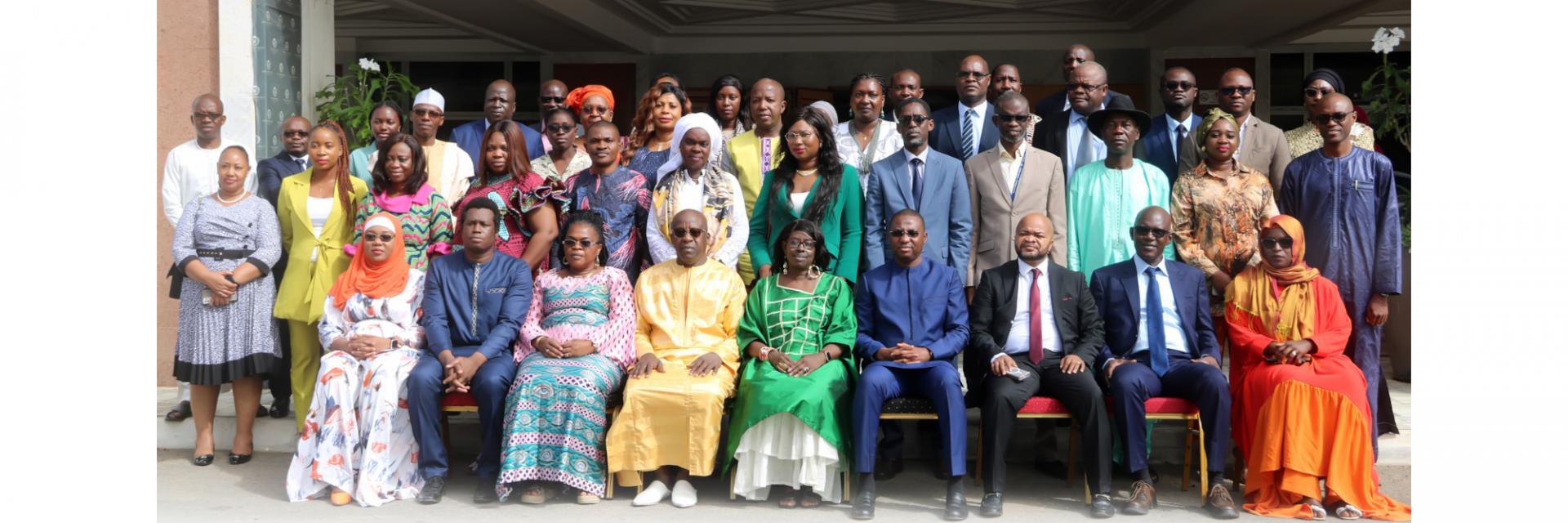An Expert work Group Meeting to examine the Report of the Study on “The Opportunities of Regional Value Chains in West Africa in the context of the African Continental Free Trade Area (AfCFTA )” was organized from June 20 to 21 in Dakar by the Sub-Regional Office for West Africa of the United Nations Economic Commission for Africa (ECA/SRO-WA), in collaboration with the Economic Commission of West African States (ECOWAS) and the United Nations Development Program (UNDP).
It aims at:
-
examining and improving the draft report of the study on the main value chain opportunities in West Africa;
-
informing and mobilizing the involved actors, namely the private sector and their umbrella structures at regional level in the project to develop value chains in West Africa in the context of the AfCFTA ;
-
agreeing on a sub-regional roadmap for the implementation of the recommendations of the study and particularly the development of value chains in West Africa, in line with ECOWAS initiatives in this area.
Value chains, whether regional or global, represent the new face of international trade. They are booming, and now account for almost half of total world trade. They are associated with a variety of benefits, including poverty reduction, income generation, structural transformation and inclusive growth. For example, it has been shown that a 1% increase in trade through value chains leads to an increase of more than 1% in a country's per capita income, which is more than double the income gain attributed to ordinary trade (reference: World Bank, World Development Report 2020).
With the advent of the AfCFTA, intra-regional trade is expected to increase significantly. Indeed, according to ECA simulations, the implementation of the AfCFTA should generate a 33.8% increase in intra-African trade by 2045 (compared with less than 20% in 2020). This should translate into an increase in trade in agri-food products of 41.1%, industrial products of 39.0%, energy and mining products of 16.10%, and services of 39.2%.
In the ECOWAS region, the effective implementation of the agreement should generate more gains than at regional level, i.e. over 32% of the gains at continental level, notably in terms of intra-African trade, including in sectors with high potential for added value, GDP and well-being.
The Director of ECA/SRO-WA, Ngone Diop said that the multifaceted crises such as the Covid19 pandemic, the war in Ukraine and the climate crisis have slowed down or even annihilated the development efforts of the countries in the West African sub-region as shown by the deceleration of economic growth estimated to an average of -2% in 2020, compared to 3.4% in 2019”.
“In response to these worrisome trends, the positioning of West African economies in value chains, through tariff and non-tariff disarmament, should be an integral part of a more comprehensive approach to the integration of production and trade sectors in the AfCFTA,” explained Ngone Diop.
However, continued the Director of BSR-WA/CEA, “It is necessary to identify and prioritize regional value chains capable of positioning the region as a production and a preferred trade center, competitive within the “single African market”.

